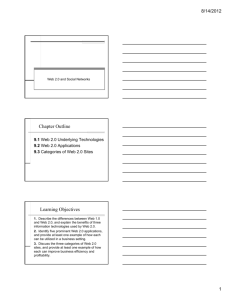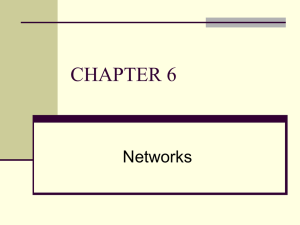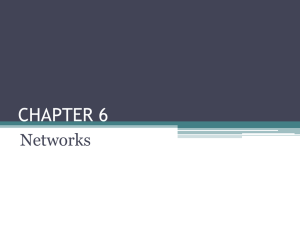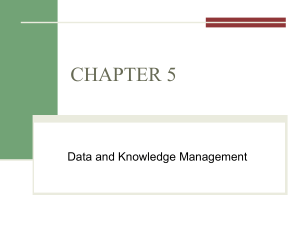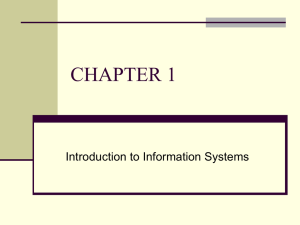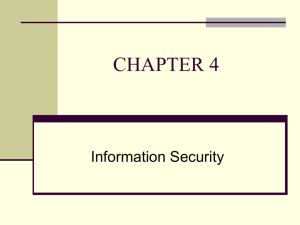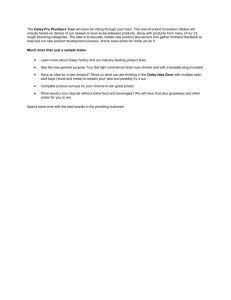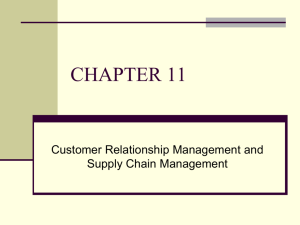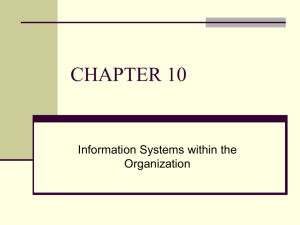CHAPTER 9
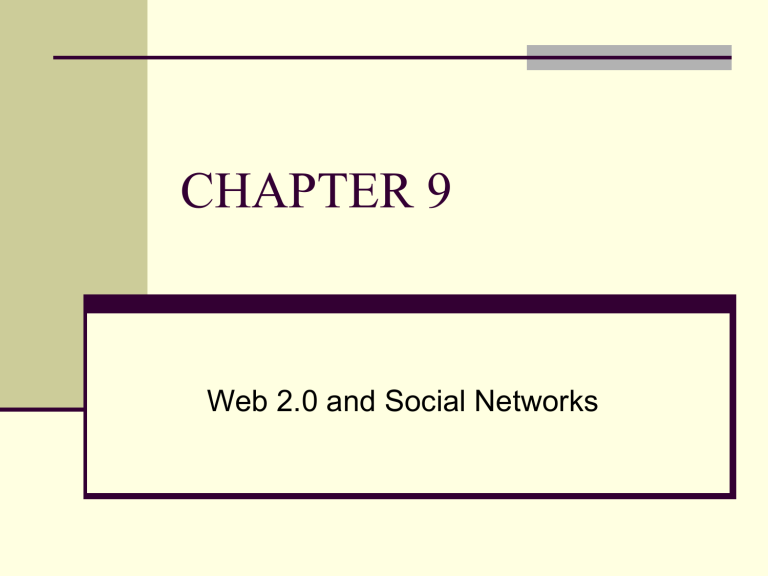
CHAPTER 9
Web 2.0 and Social Networks
Chapter Outline
9.1
Web 2.0 Underlying Technologies
9.2
Web 2.0 Applications
9.3
Categories of Web 2.0 Sites
Learning Objectives
1.
Describe the differences between Web 1.0 and Web 2.0, and explain the benefits of three information technologies used by Web 2.0.
2. Identify five prominent Web 2.0 applications, and provide at least one example of how each can be utilized in a business setting.
3. Discuss the three categories of Web 2.0 sites, and provide at least one example of how each can improve business efficiency and profitability.
Chapter Opening Case: From Social
Networks to Social Commerce
Source: VLADGRIN/Shutterstock
Keep in mind throughout this chapter that every year roughly $100 B illion is spent on local advertising. Over $300 per person in the U.S.
9.1
Web 2.0 Underlying Technologies
© Matthias Pahl/Age Fotostock America, Inc.
Most Common Web 2.0 Memes
A meme is any unit of cultural information, such as a practice or idea, that is transmitted verbally or by repeated action from one person to another.
Examples include thoughts, ideas, theories, practices, habits, etc.
Note the basic memes of Web 2.0 are: usability , participation , economy , convergence , remixability , design , and standardization .
TWO-WAY INTERACTION
© Marek Uliasz/Age Fotostock America, Inc.
Web 2.0 Underlying Technologies
AJAX - technique that allows portions of web pages to reload with fresh data instead of requiring the entire web page to reload
Tagging - a keyword or term that describes a piece of information (e.g., blog, picture, article, video clip)
Really Simple Syndication (RSS
) – a way to allow efficient streaming of video
Geo-Tagging
© Adam Radosavljevic/Age Fotostock America, Inc.
9.2
Web 2.0 Applications
Blogs and Blogging – there are unfortunate consequences of ‘herd instinct’
Wikis – the Cobert Report
Netcasting – usually audio and/or video that allow asynchronous consumption
Web 2.0 Media
Printing-on-Demand
Crowdsourcing – such as Tongal
Blogs and Wikis
Blogs, Blogging, and the Blogosphere
© Panther Media/Age Fotostock America, Inc.
Wikis used in business
Netcasting
Podcasts and Videocasts
Source: Lane Oatey/Getty Images, Inc.
Web 2.0 Media
Video
Music
Photographs
Source: Lane Oatey/Getty Images, Inc.
Printing-on-Demand
© Kitch Bain/Age Fotostock America, Inc.
Crowdsourcing Web Sites
Jobs traditionally performed by an internal employee or by a consultant and providing an “open call” to the Internet community (or a subset) to create the product/solution
Think of reverse auctions.
Can be dangerous if exact needs and product requirements are not well defined.
Source: Scott Maxwell/ LuMaxArt/Shutterstock
9.3
Categories of Web 2.0 Sites
Social Networking Sites
Aggregators
Mashups
Social Networking Sites
© Marina Bordjieva/Age Fotostock America, Inc.
For a list of social networking sites:
Check out this BusinessWeek slideshow
Twitter and the Iranian Election
Aftermath of the Iranian election in 2009
© Pankaj & Insy Shah/Age Fotostock America, Inc.
Protesters’ only link to the outside world: Twitter
Aggregators
•Bloglines
•Digg
• Simply hired
•Technorati
Chapter Closing Case
•
•
•
The Business Problem
The IT Solutions
The Results
